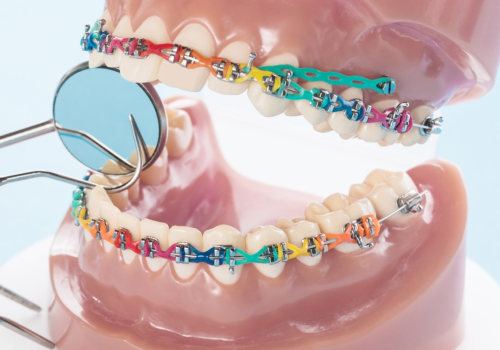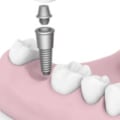The terms 'orthodontist' and 'dentist' are derived from different languages, Greek and Latin respectively. Both professionals help patients improve their oral health, but in different ways. Dentistry is a broad medical specialty that deals with the teeth, gums, nerves and the jaw, while orthodontics is a specialty of dentistry that focuses on correcting teeth bites, occlusion and straightness. An important distinction is that all orthodontists are dentists, but not all dentists are licensed orthodontists.
After graduating from dental school and taking the certification exam, orthodontists attend an orthodontic residency program for an additional two or three years to obtain a specialty certification in orthodontics. Dentists and orthodontists are two types of doctors who have extensive practice diagnosing and treating oral health conditions. For instance, your dentist may recommend that if you have a child close to seven years old, you take him to the orthodontist for examination. During the initial evaluation, an orthodontist may recommend one of these treatments depending on your bite.
Orthodontists receive advanced specialized training in this area and, as such, are experts at correcting dental problems related to misalignment. Only orthodontists have two or more additional years of orthodontic education from a program accredited by the Commission on Dental Accreditation, which provides them with specialized training in moving teeth. Certified orthodontists are trained to diagnose and treat oral health conditions of the teeth, gums, and mouth. Similarly, a dentist can provide braces or aligners to move teeth, but that doesn't mean the dentist is an orthodontist.
Both dentists and orthodontists usually work in an office and do not require an operating room. Dentists typically focus on preventive care and general oral health, while orthodontists specialize in correcting tooth and jaw irregularities, such as misaligned teeth. In most cases, you'll need to see an orthodontist for specialized treatment, while your dentist can provide basic dental care and advice. Therefore, while a dentist completes four years of education, an orthodontist usually completes between six and seven years of schooling. If you're concerned about your oral health, it's important to see a dentist or orthodontist.
An orthodontist requires additional education as a dental specialty; the situation is similar to that of a doctor who obtains additional education to become a surgeon. While dentists and orthodontists share many similarities, there are also some key differences between the two professions. The root of the word 'orthodontist' is Greek and means 'straight', which explains why it is used instead of 'orthodontics'. Orthodontists have more specialized training than dentists in correcting dental problems related to misalignment. They also have two or more additional years of education from an accredited program which provides them with specialized training in moving teeth.






